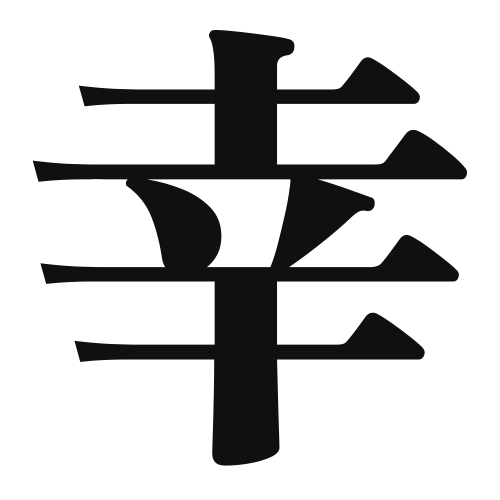1. Overview of Meaning
The kanji “幸” (pronounced “sachi” or “kou”) means “happiness” or “good fortune.” It represents a state of well-being and joy in life.
2. Formation and Radical
The kanji “幸” is a compound character that combines elements to convey its meaning. It consists of the radical 土 (earth) at the bottom, which often relates to stability and grounding, and the phonetic component コウ (kou) at the top, which contributes to its pronunciation.
3. Examples of Usage
Common words and phrases that include “幸” are:
- 幸福 (koufuku) – happiness
- 幸運 (kouun) – good luck
In everyday conversation, you might say:
「彼は幸せそうです。」 (Kare wa shiawase sou desu.) – “He looks happy.”
4. Synonyms and Antonyms
Similar kanji with related meanings include:
- 喜 (ki) – joy, which emphasizes a feeling of delight.
- 楽 (raku) – comfort or ease, which focuses on a state of being free from stress.
Antonyms include:
- 不幸 (fukou) – unhappiness or misfortune.
5. Cultural and Historical Background
The concept of “幸” is deeply rooted in Japanese culture, where happiness and good fortune are often celebrated in festivals and traditions. For example, the New Year is a time when people wish for “幸運” (good luck) in the coming year.
Additionally, there are proverbs and idiomatic expressions such as:
- 幸せは自分の手の中にある (Shiawase wa jibun no te no naka ni aru) – “Happiness is in your own hands.”
This reflects the belief that individuals have the power to create their own happiness.
